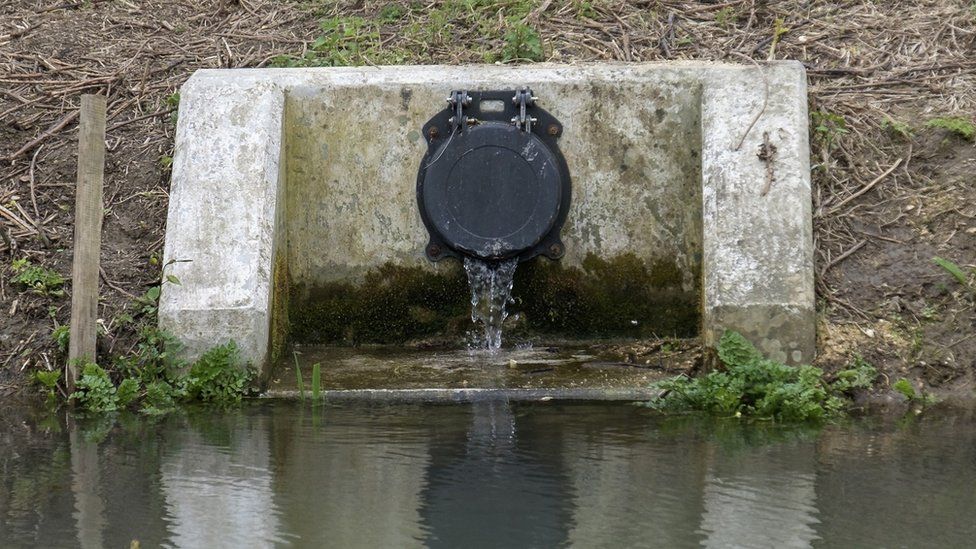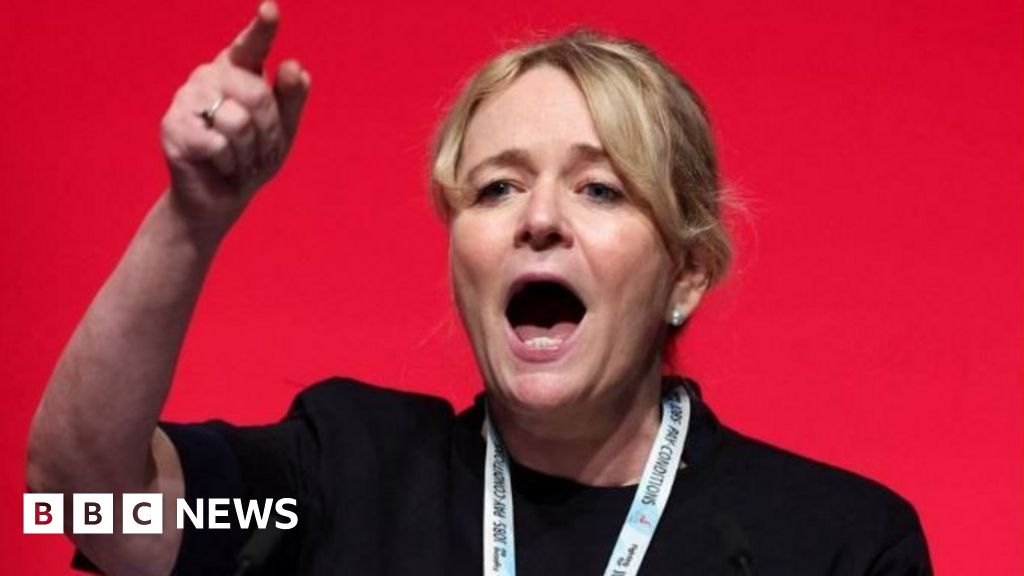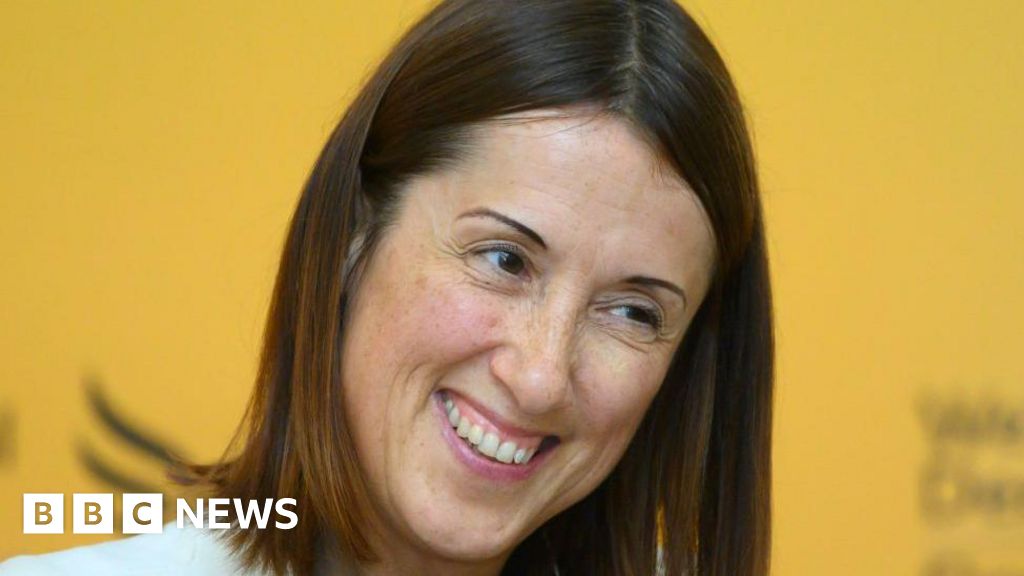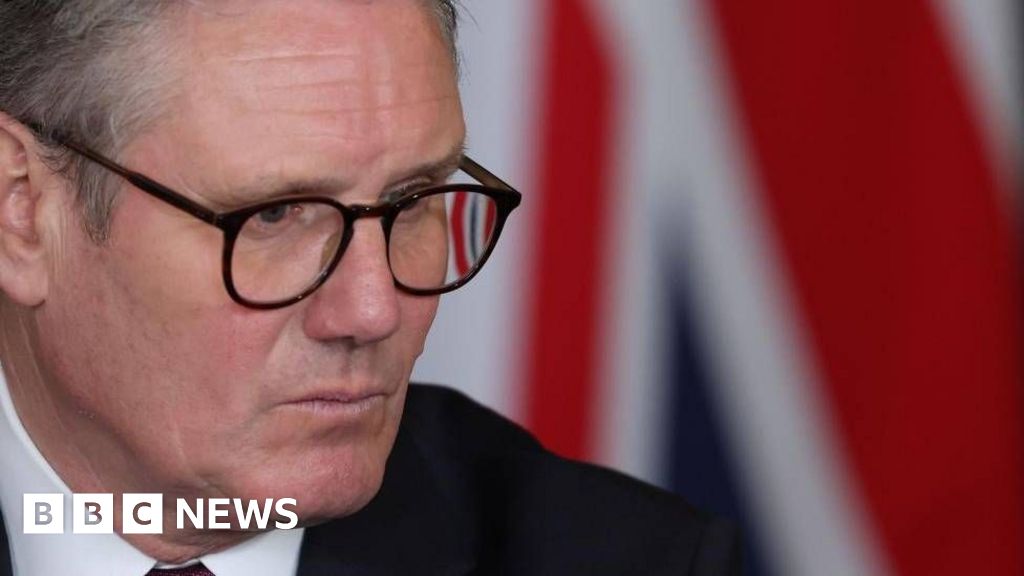ARTICLE AD BOX
 Image source, Getty Images
Image source, Getty Images
By Esme Stallard and Jonah Fisher
BBC News Climate and Science
Sewage spills into England's rivers and seas by water companies more than doubled last year.
According to the Environment Agency there were 3.6 million hours of spills compared to 1.75 million hours in 2022.
Water UK, the industry body for sewerage companies, said it was 'unacceptable' but the record levels were due to heavy rain.
These spills are not illegal but environmentalists say they should only happen in exceptional weather.
And the Environment Agency said: "It is important to note that heavy rainfall does not affect water companies' responsibility to manage storm overflows in line with legal requirements."
The UK has combined sewage systems which mean rain and sewage share the same pipes, so if there is too much rain sewage treatment works can be overwhelmed. Sewage is spilled into waterways to prevent the system backing up.
It works out that on average last year there were 1,271 spills a day across England, compared to 825 in 2022.
Contained within the spills is human waste, wet wipes and sanitary products, which can pose a serious risk to the local wildlife, swimmers and others who use UK waterways.
The rain can help to dilute the sewage but academics warn there is still a risk to the local environment and anyone swimming in these bodies of water.
"Sewage pollution in the UK severely impacts waterways, with not a single river in England rated as healthy according to the latest Rivers Trust Rivers report," said Dr Dania Albini, research fellow in biosciences at University of Exeter.
She explained that sewage in rivers can reduce oxygen levels in the water which harms aquatic life and "causes sickness [in humans] due to the presence of harmful microorganisms and parasites."
Your device may not support this visualisation
In March this year when the River Thames was in flood, testing at Fulham Reach by the charity River Action revealed that there was up to 10 times the amount of E.coli bacteria that is allowed for bathing water status.
Andy Mitchell, the CEO of Tideway, told BBC News: "We're going to capture the vast, vast majority of the sewage that comes into the river and it will mean a cleaner river."
Last year, on behalf of all English sewerage companies, Water UK announced they would invest £10bn to upgrade sewage infrastructure - but these plans first have to be approved by the regulator Ofwat.
Your device may not support this visualisation
Water UK called on the government to accelerate this decision and also other plans like banning wet wipes which they said would eliminate thousands of spills which are happening as a result of blocked drains. The government first promised to introduce this ban six years ago.
Water Minister Robbie Moore said: I have been clear that sewage pollution in our waters is unacceptable. Today's data shows water companies must go further and faster to tackle storm overflows and clean up our precious waterways. We will be ensuring the Environment Agency closely scrutinise these findings and take enforcement action where necessary."
In response to the data Labour's Shadow Environment Secretary, Steve Reed, called on the government to introduce an immediate ban on bonuses for polluting water bosses. Ofwat is currently undertaking a consultation to consider this measure.
Liberal Democrat leader Ed Davey said he called on the government to declare a national emergency. "That must include convening an urgent SAGE meeting to look into the impact of sewage spills on people's health," he said.
Green Party co-leader Carla Denyer said: "The £57bn in payouts from the water industry over the last 30 years should have gone towards improving standards."
Image source, Thames Tideway Tunnel
Image caption,The Thames Tideway - or 'supersewer' - tunnel is wide enough to fit three buses side by side
The latest data, revealed by the Environment Agency on Wednesday, was taken from monitoring stations installed at combined sewer overflows or CSOs. CSOs were developed as overflow valves to reduce the risk of sewage backing up in people's homes during heavy rainfall when sewer pipes become overloaded.
The overall number of spills was expected to be higher because of the high rainfall in 2023 - which was 20% above average - and for the first time all 14,580 CSOs were fitted with monitors. In 2019 only 57% were fitted with monitors, so only half of spills were recorded.
James Wallace, CEO of charity River Action, told BBC News he is not surprised by the high number of spills but more because there is a lack of oversight by the regulators.
"Water companies are not being made to invest in fixing their leaky pipes - as long as we have an Environment Agency and Ofwat that are incapable of doing their jobs then we are not in a position to expect water companies to behave," he said.
Ofwat and the Environment Agency are both conducting separate investigations into England's nine sewerage companies - with the outcome of those expected this year.
But these two agencies are themselves under investigation by the independent Office for Environmental Protection who are concerned they have interpreted the law incorrectly on sewage discharging - allowing spills whenever it rains rather than only when there is "exceptional" rainfall.
Image source, Simon Collins
Image caption,Horley Treatment Works has repeatedly flooded over the last year
In the small Surrey town of Horley, just outside Gatwick Airport, residents have seen local footpaths flooded ten times in the last year as the treatment works struggled to cope with heavy rainfall.
Nigel Bond and Simon Collins from local resident group River Mole Watch said they have repeatedly contacted Thames Water and the Environment Agency about the issue but said all they have done is put sandbags down.
Mr Collins told BBC News: "There's a problem at this sewage works at Horley, where the storm tanks don't discharge into the river, they simply fill up and overtop.
"The sewage comes washing across the whole length of the footpath... where people are walking dogs and children are playing."
A Thames Water spokesperson said: "We regard any untreated discharges as unacceptable. We have published plans to upgrade over 250 of our sewage treatment works, this includes our Horley Sewage Treatment Works. The upgrade is expected to begin construction in 2025.
"In the meantime, we have temporarily closed the footpath next to the site, while we work with contractors to build a new wall to help mitigate against flooding."
Additional reporting by Sophie Woodcock, Becky Dale, Erwan Rivault and Rob England.

 1 year ago
26
1 year ago
26








 English (US) ·
English (US) ·